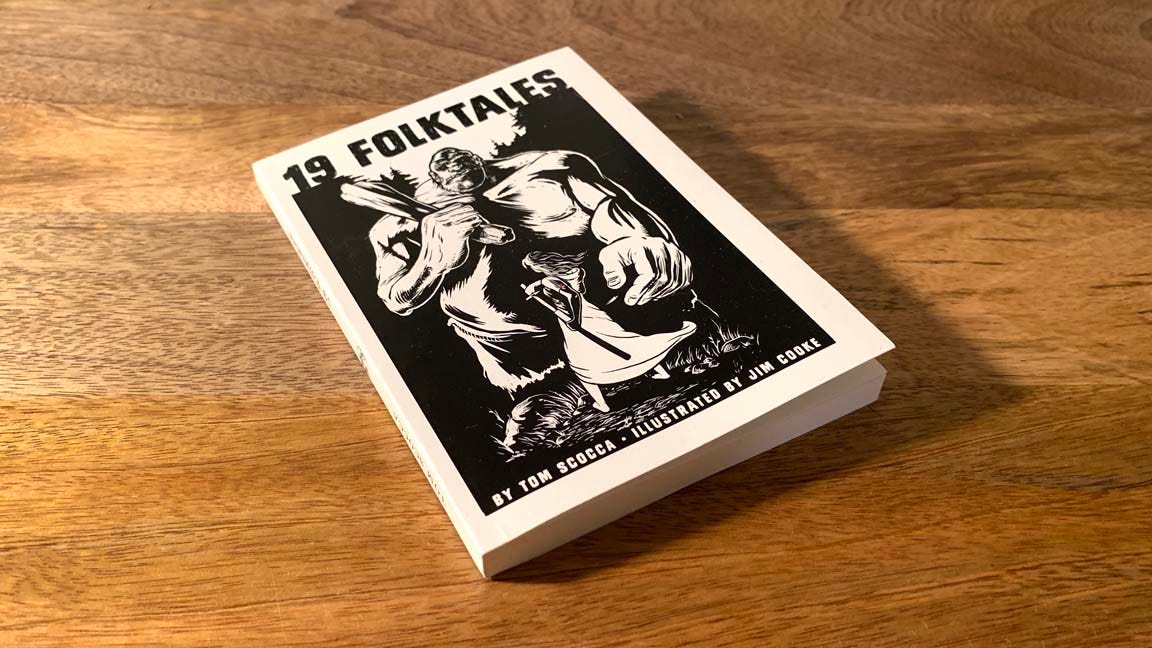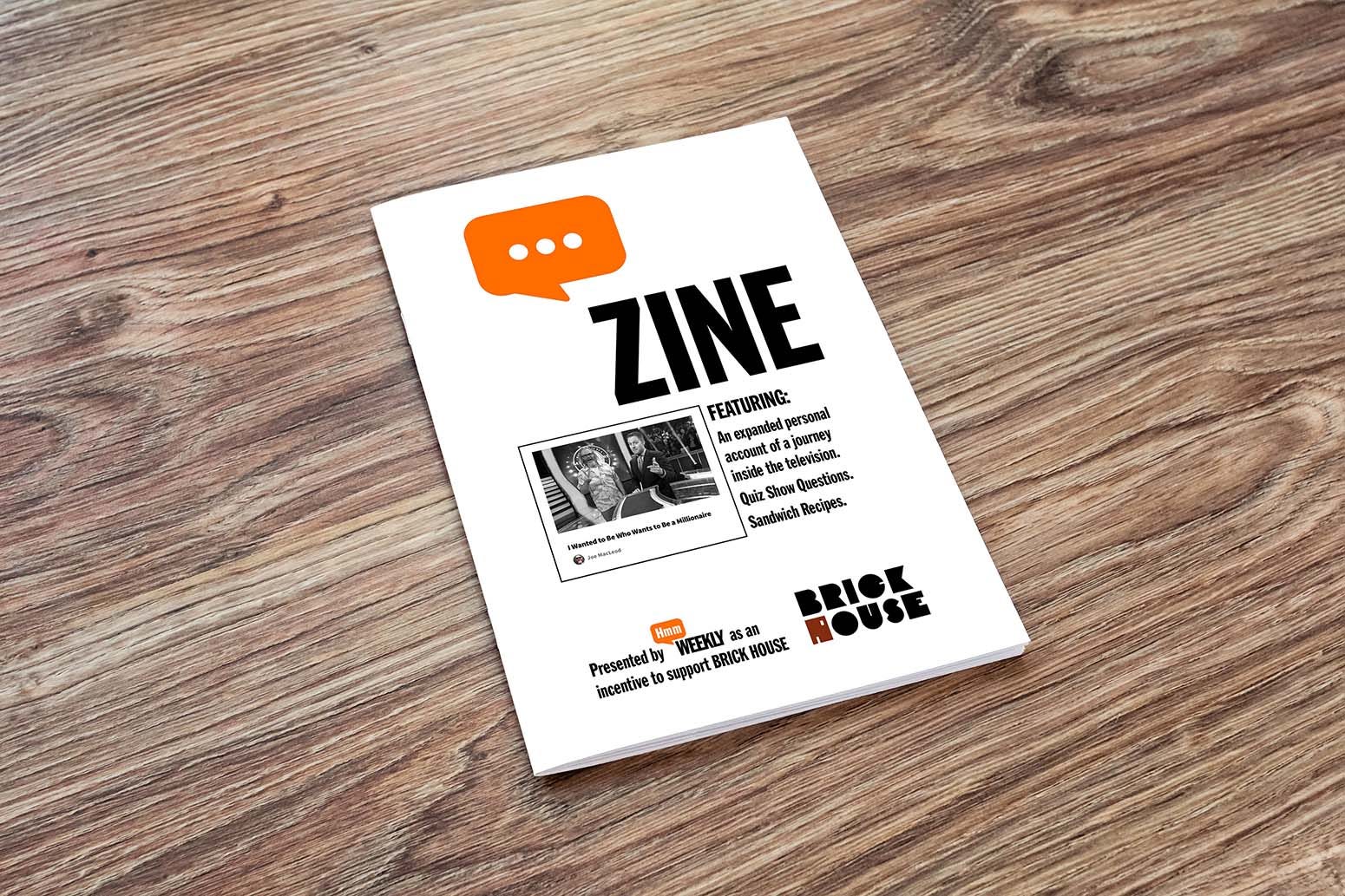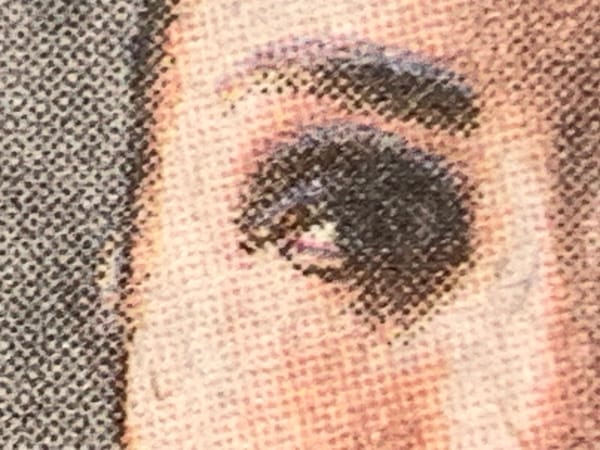You never see reading glasses coming
ANDY ROONEY 2.0

If You Can Read This, Your Eyes Are Too Young
WHEN I WAS a kid, by which in this case I mean "under 45," reading glasses were someone else's problem, and it seemed natural to assume they always would be. My grandma had reading glasses, on a cord, to help her see her books or her knitting, the same way she cranked up the volume on the TV to hear Murder, She Wrote, and obviously I was never going to be watching Murder, She Wrote. I had my own eye troubles, but they were all about my eyes being too good at reading, the left one in particular being a superpowered close-range viewer, so that things at greater than book-distance got blurry fast.
Bifocals seemed especially nonsensical. I would look at the inset half-moon of glass in glass, on some middle-aged person's face, and on some level I would think that the weird mismatched arrangement of refractions was so awkward that it could never apply to me.
A lot of what's enjoyable about being young is the failure to understand what's coming for you. You can hear everything fine, that's just what it's like having ears. What? I said, YOU CAN HEAR EVERYTHING FINE.
My first intimation that I was maybe not right about all this came in my late 30s. I was in China, filling out a little slip to make a bank deposit or pay the utility bill or something, and I couldn't read the form. How could I not read the form? I filled out forms all the time. I could read Chinese characters, back then, at least well enough to figure out things like "name" and "date" and "account number." But I could not read the Chinese characters on the form. They were too small.
I realized, then, that the reason I could read tiny lettering on forms in English was that I had been reading English words, millions and millions of them, for nearly my whole life. All my eyes had to do was make out the general shape of the text, and my brain would sharpen it into readability. With Chinese, I had to see it—really see it—to decipher it. I filed this away as an interesting fact with no real future implications.
Then emoji took off, and I couldn't make those out either. The age gap between me and younger friends or colleagues wasn't a matter of my not knowing how to use emoji—everyone got started around the same time. It was that at phone display sizes, I couldn't tell one little yellow dot's facial expression from another's.
Inevitably, gradually, words went next. The type on something was really small, or too fussy. The restaurant lighting was bad. Reading fanciful stories to the kids at bedtime, I would catch myself faltering over the made-up names—the normal words kept flowing by, but I could no longer stitch together unfamiliar patterns of letters on the fly. The Roman alphabet was where the Chinese characters had been a decade earlier.
Finally I surrendered, or did what I thought should count as surrender, and started using non-prescription reading glasses when the reading got too difficult. A little practical corrective boost, when I most needed it.
Ha. Here's the thing about that flexible, adaptable visual-processing brain: It adapts. It resets its expectations and predictions—its ability to see—when the inputs change. Once it starts seeing things through reading glasses, it expects to keep seeing everything through reading glasses. If the glasses get put on to read one thing, they stay on for the rest of the day.
And it's not just words. Every other detail in that distance range goes. The wilted edges on the lettuce. The cat's claws that I'm trying to trim. The drive notch in the top of a screw. I walk around the house with the reading glasses pushed down my nose, or pushed up on top of my head—or just on, as if they were regular glasses, because the number of situations for which I don't need them keeps dwindling.
Without them, now, I basically can't read, or can't trust myself to read. The world of text in which I used to be unthinkingly immersed swims in and out of decipherability. My own handwriting on old notes or recipes, tiny and sloppy and elliptical, is the stuff of fragmented manuscripts from antiquity. I am constantly bluffing or ignoring things.
No wonder old people come across as careless and irritable. No wonder their affairs get sloppy around the edges. It's too much of a hassle to care about what you can't properly see!
Don't even get me started on the floaters.

WEATHER REVIEWS

New York City, September 11, 2023
★★★ The heavy clouds on the morning were a preview of when every school morning would be sunk into darkness. A spell of sun took over, then gave way to clouds again. Either way, the humidity held on, indifferent to the changing daylight. The long-threatened rain finally hit with a sound like sticks blowing down and fat whitish drops angled just off vertical. The rain stopped and some sun came back, but thunder kept sounding intermittently—in booms or in rumbles or a sharp, high-pitched crack. The last of these brought more rain, and the windows went night-dark at 5 o'clock. The booming of the thunder overwhelmed the roar of the air conditioner and the kitchen cooking noises. Then it was over, and the prematurely closed shutters opened out onto a spreading yellow-green glow.

EASY LISTENING DEP’T.
INDIGNITY MORNING PODCAST
Indignity Morning Podcast No. 143: Nothing like a processed memory.
Tom Scocca • Sep 12, 2023

Listen now (6 mins) |
Read full story →

SANDWICH RECIPES DEP’T.
WE PRESENT INSTRUCTIONS for the assembly of select sandwiches from The Altrurian Cook Book: Favorite Recipes Contributed by the Wives and Daughters of Troy, by the Troy Altrurian Club, Troy, N.Y. Published in 1910, this book is in the Public Domain and available at archive.org for the delectation of all.
MIXED CHEESE SANDWICHES.
Take equal parts of Neufchatel or some light cream cheese and Roquefort and pound and mix them well together. When they are of the consistency of a good thick paste add a few drops of tabasco sauce and mix again. Spread on unbuttered bread.
NUT SANDWICHES.
To one cup of English walnuts, chopped fine, add a pinch of salt and sufficient fresh cream cheese to make a thin paste when well mixed. This should be made as late as possible before serving, as it will otherwise get oily and strong. Spread on fresh unbuttered bread.
NASTURTIUM SANDWICHES.
Spread thin slices of diamond shaped bread with mayonnaise dressing; and put together with nasturtium leaves and seeds chopped fine.
—Mrs. J. H. Carr.
If you decide to prepare and attempt to enjoy a sandwich inspired by this offering, kindly send a picture to us at indignity@indignity.net.

MARKETING DEP'T.

19 FOLKTALES collects a series of timeless tales of canny animals, foolish people, monsters, magic, ambition, adventure, glory, failure, inexorable death, and ripe fruits and vegetables. Written by Tom Scocca and richly illustrated by Jim Cooke, these fables stand at the crossroads of wisdom and absurdity.

HMM WEEKLY MINI-ZINE, Subject: GAME SHOW, Joe MacLeod’s account of his Total Experience of a Journey Into Television, expanded from the original published account found here at Hmm Daily. The special MINI ZINE features other viewpoints related to an appearance on, at, and inside the teevee game show Who Wants to Be A Millionaire. Your $20 plus shipping and tax helps fund The Brick House collective, a Publishing Concern featuring a globally diverse set of publishers doing their own thing, with interesting items and publications available for purchase at SHOPULA.
Thanks for reading INDIGNITY, a general-interest publication for a discerning and self-selected audience. We depend on your support!






